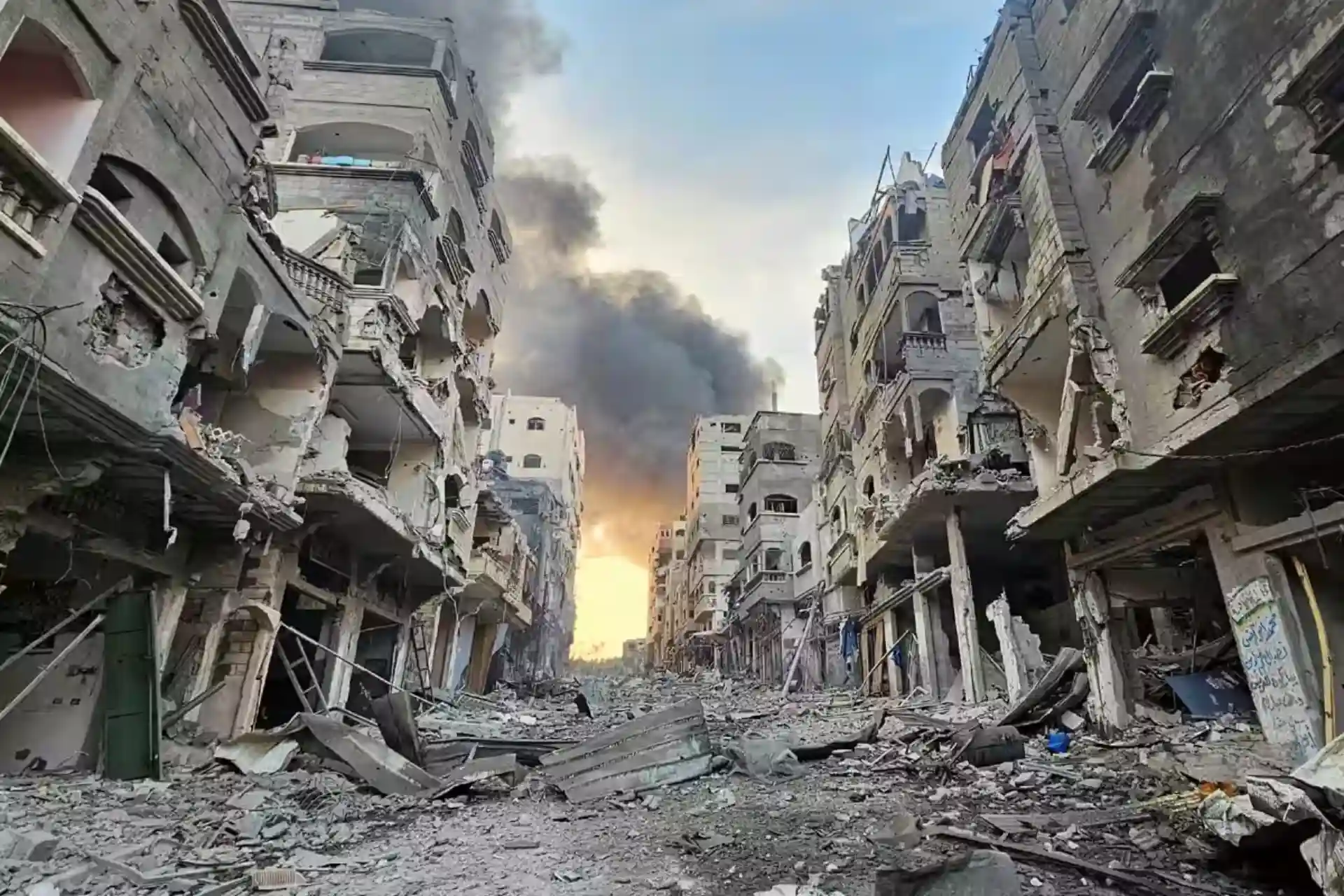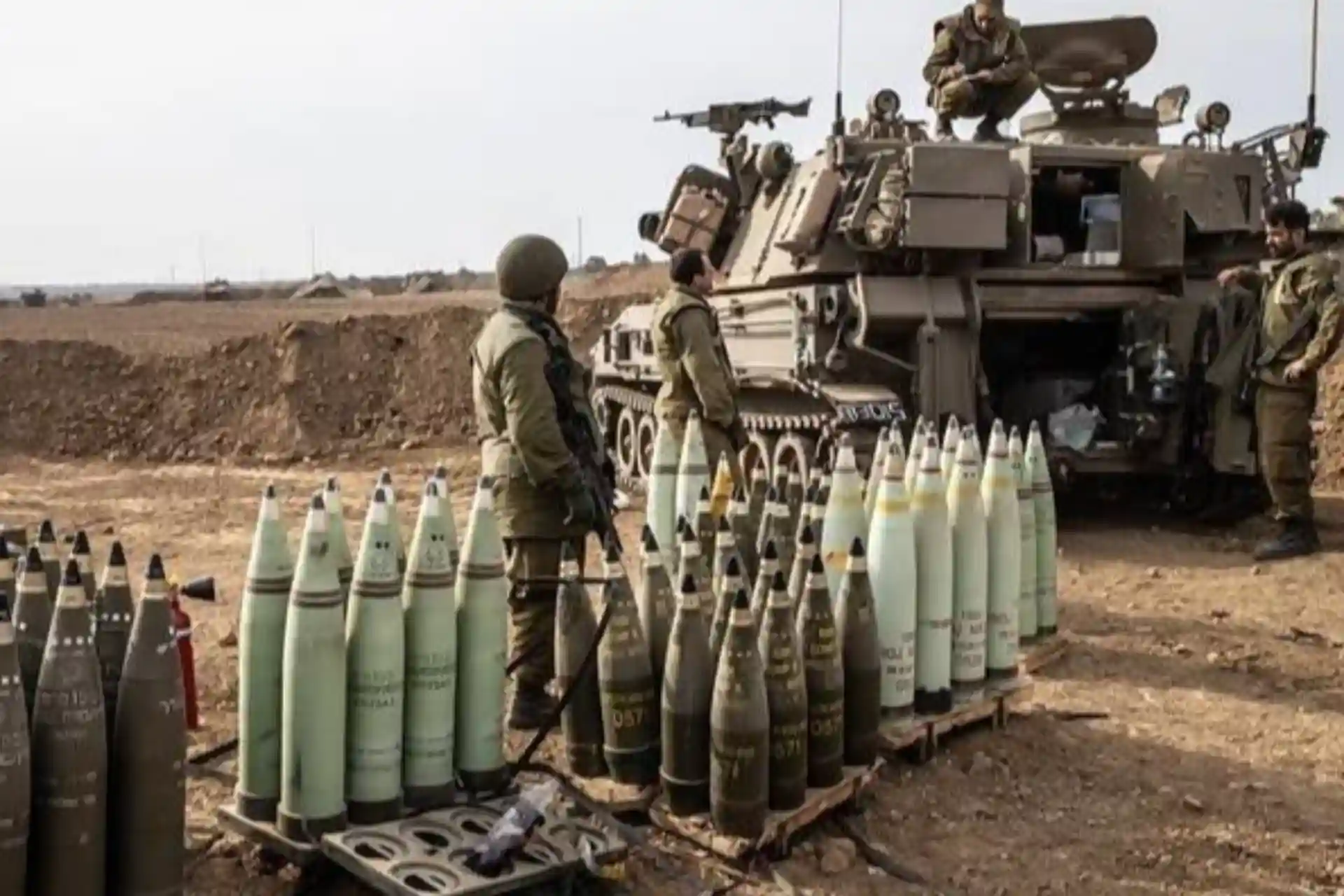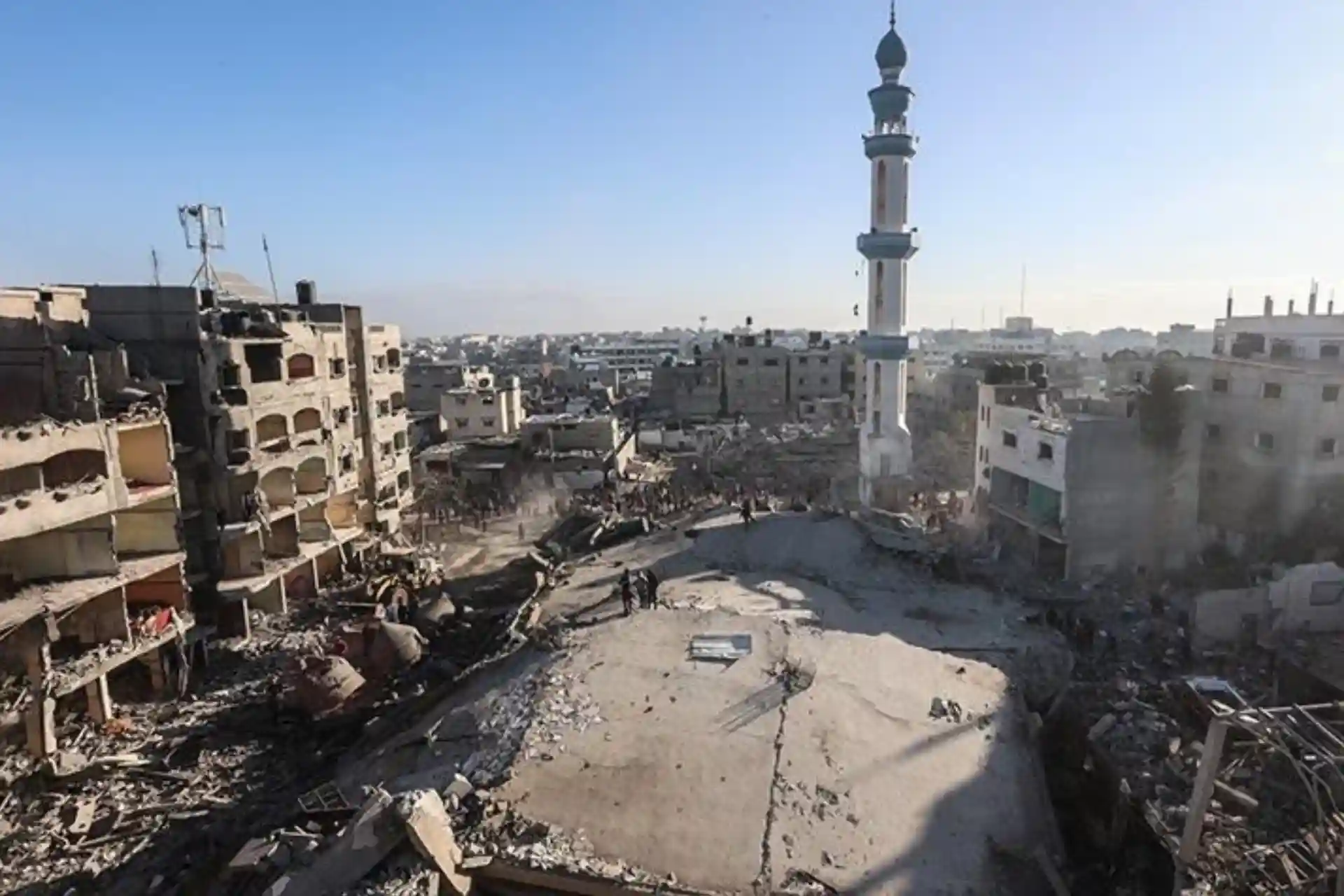Wars of aggression are the greatest threat to planet Earth
Overall, the world's military is responsible for 5.5 percent of global greenhouse gas emissions each year—more than the aviation and shipping industries. Queen Mary University of London recently concluded that the debris generated in the first 120 days of the latest massacre in Gaza was more than the annual waste of 26 countries - from a paper by researchers at Queen Mary University of London.
The international community is now finally realizing that the Earth's ecosystem cannot withstand heavy military occupation. They realized this fact after the terrible explosions that have been happening in Gaza since October 7. This meaning is embodied in the motto of the environmental protection movement "No justice in the occupied land".
Those who witness the brutal military violence are well aware of the devastation that bombs and missiles can have on the Earth and life on it.
For example, a recent hearing on "Environmental Violence in West Papua" held in Rome under the jurisdiction of the Permanent Court of Nations (PTC) highlighted how Indonesia's military occupation of more than seven decades has led to the gradual loss of one of the most biodiverse forests on the planet.
West Papua has one of the largest copper and gold deposits in the world. A liquefied natural gas plant is also located in the area. In addition, West Papua is the fastest growing destination for palm oil and biofuel plantations in Indonesia. All of these industries under military occupation leave behind harmful waste.
That's why at the meeting in Rome, renowned Papuan lawyer Jan Christian Varinussi spoke about the connection between the suffering of the city's people and the exploitation of the region's natural resources. Just one week later, he was shot and injured by an unknown assailant. The DRC secretariat said the attack came after the lawyer described "past and current violence against the region's vulnerable population and environment". The assassination of Varinussi reaffirmed the close connection between military occupation and environmental violence.
Overall, the world's military is responsible for 5.5 percent of global greenhouse gas emissions each year—more than the aviation and shipping industries. Recently, researchers at Queen Mary University of London concluded that the debris from the first 120 days of the latest massacre in Gaza was more than the annual waste of 26 countries.
But even these terrible statistics are not enough to make the occupiers aware of the ecological tragedy caused by military violence. The effects of war and occupation on the climate are not just side effects or regrettable consequences. For example, what is happening in Gaza should not be understood simply as two different consequences: killing people on the one hand, and environmental impacts on the other. In fact, people and nature are inseparable. Genocide in Gaza is also ecocide.
In the Vietnam War, the American invaders intended to destroy agriculture by using toxic chemicals, thereby forcing people off their land and into "strategic villages." Forests used as shelters by the Vietcong were also cut down and destroyed by the US military to reduce the population's ability to resist. International lawyer and anti-war activist Richard Falk coined the term "ecocide" to describe this situation.
This is typical of many military operations: the invaders tactically used this black method to cut off the stable livelihood, water and food supply of the local population.
Since 2014, Israeli occupation forces have also used chemical weapons to destroy Palestinian homes and other critical infrastructure. Herbicides sprayed from the air by the Israeli military have completely destroyed the cultivated fields in Gaza. In other words, Gaza faced the "ecocide" that was carried out in Vietnam long before October 7.
At least 50 percent of Gaza's agricultural land and gardens have now been completely destroyed, researchers say. Many ancient olive groves were destroyed. Cultivated fields are completely leveled with the help of tanks, tractors and other vehicles. Extensive airstrikes have rendered Gaza's greenhouse production facilities unusable. The worst thing is that all this is being done consciously.
The complete destruction of water supply and sanitation facilities and the ongoing famine in the Gaza Strip are not just consequences, but a deliberate evil tactic of war against the civilian population. The Israeli military is using the hunger and need of water as a weapon. Of course, this situation is not new to any Palestinian or West Bank. Israel has been using these methods for years to continue its occupation, expel Palestinians from their land, and build illegal Jewish settlements.
The damage the Zionists are doing to the Palestinians is a direct long-term damage to our planet. Therefore, genocide in Gaza or anywhere else cannot be separated from ecocide. Anyone interested in ending human suffering now and preventing climate catastrophe in the future must oppose those behind all wars of aggression and oppression.
David White, Professor of Climate Justice at Queen Mary University of London;
Samira Homerang Saunders is a research fellow at the Center for Climate Crime and Climate Justice at Queen Mary University of London.



